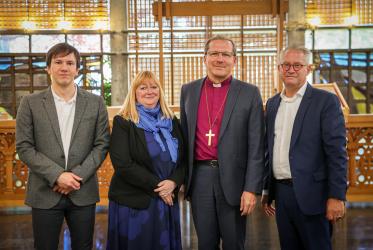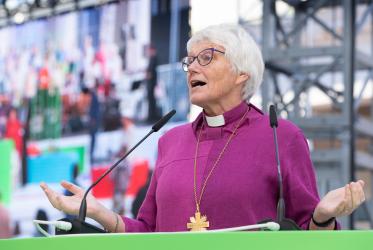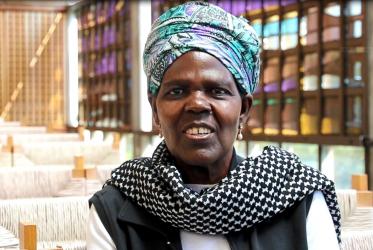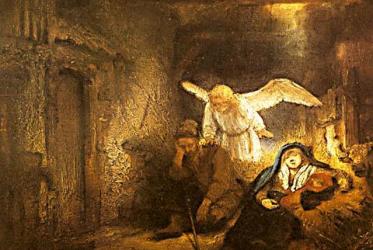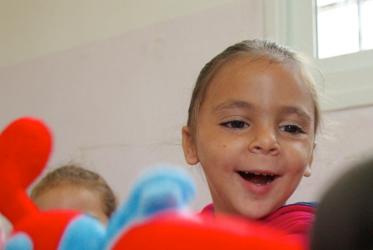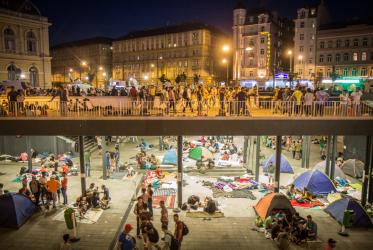Displaying 1 - 20 of 23
29 September 2023
Uppsala 1968: The times, they were a’changing
06 September 2022
In pictures: Week of Prayer for Christian Unity
01 February 2021
Driven by God’s grace and a sense of duty
05 November 2020
WCC well-represented in Religions for Peace leadership
07 October 2019
WCC moderator “A call for equality in God’s house”
08 April 2019
Trying to do good for the world
18 December 2017
Second Bible study on stateless persons available for Advent use
08 December 2016
Hundreds of pilgrims making way to UN Climate Change Conference
27 October 2015
European churches encouraged to work together to address refugee crisis
10 September 2015
Walking to Emmaus in the Holy Land, and Sweden
12 May 2015
WCC-EAPPI volunteers encourage EU to address Palestine and Israel
07 November 2014
